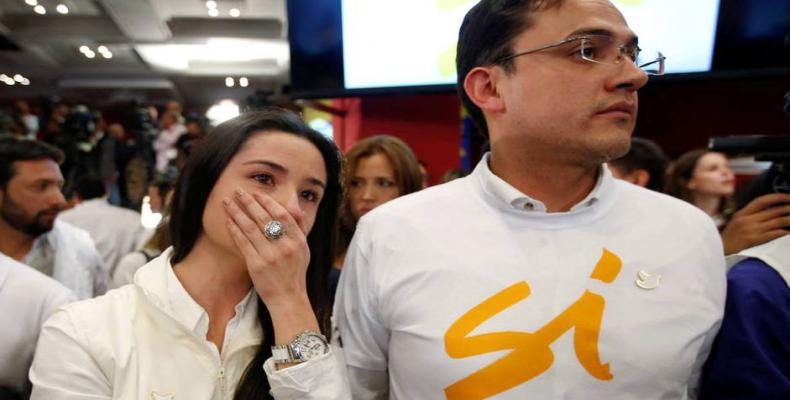Bogota, October 3 (RHC)-- The Colombian plebiscite on whether to move forward with the peace accord reached between the government of President Juan Manuel Santos and the Revolutionary Armed Forces of Colombia has been rejected by voters. The "No" vote won by a half of a percentage point, meaning the peace accord was not ratified by the Colombian population.
The "No" won 50.21 percent to 49.78 percent for the "Yes" vote. The "No" had 6,431,376 votes to 6,377,482 votes for the "Yes." Voter turnout was very low -- under 40 percent -- with only 13 million of the 35 million eligible voters making it to the polls.
The surprising results -- which went against all exit polls that had the "Yes" vote winning easily -- are showing that the areas most affected by the conflict have overwhelmingly voted "Yes" for peace. For example, in the heavily affected area of Choco, with 95 percent of the vote counted, 79 percent voted "Yes." The Caribbean provinces have also voted "Yes." And in the capital of Bogota, the "Yes" vote won by 56 percent to 44 percent for the "No" vote.
The plebiscite was non-binding and now the Colombian congress can still elect to pass the laws necessary to comply with the accords, although the amnesty law was built into the plebiscite and basically makes the agreement null.
Now the questions arise as to why would the Colombian people vote against peace. The FARC-EP had consistently called for a Constituent Assembly instead of a plebiscite, arguing that an assembly would be much more representative and would guarantee the participation of the most marginalized and affected peoples in Colombia and would go beyond a simple yes or no vote.
Colombians went to the polls to vote on the approval or rejection of the peace agreement reached between the government of Santos and the FARC-EP guerrillas after nearly four years of negotiations.
The question posed to the population was: "Do you support the final accord for the end of the conflict and the construction of stable and lasting peace?" The final text of the peace deal was signed on September 26 by President Santos and the FARC-EP leader Timoleon Jimenez, with numerous regional leaders and heads of state in attendance. The historic act is now clouded by the outcome of the plebiscite.
Abstentionism the Big Winner in Colombia's “No” Vote on Peace Accord

Articles en relation
Commentaires
Laissez un commentaire
Tous les champs sont requisPlus de visites
- Lula rejette le blocus de Cuba au sommet de la Celac et met en garde contre l'ingérence
- L'ambassadeur de Cuba au Venezuela remercie la solidarité internationale avec les missions médicales (+Photo)
- La levée du blocus américain contre Cuba est demandée en France
- Le gouvernement guatémaltèque est appelé à rejeter les positions extrêmes interventionnistes des États-Unis à l'égard de Cuba
- Le président Díaz-Canel rentre à Cuba après avoir participé au sommet de la CELAC au Honduras (+Photo)

